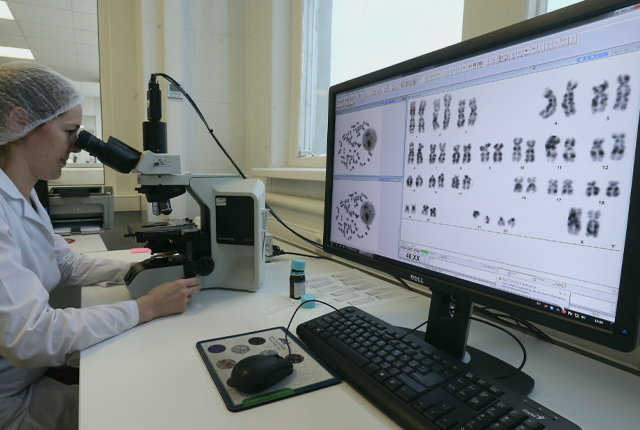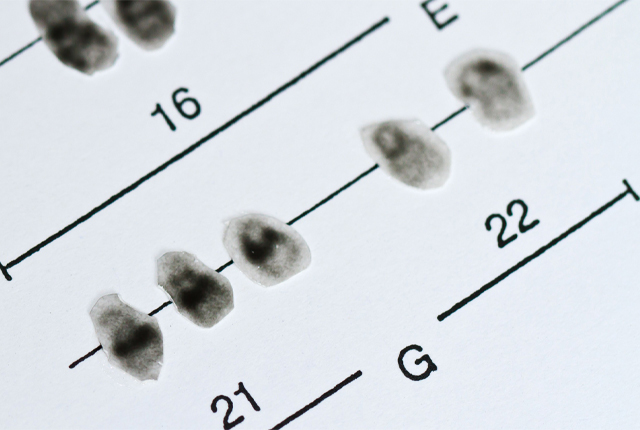

A karyotype is a genetic test performed on blood or body fluids to analyze and evaluate the number and structure of a person’s chromosomes to detect abnormalities.

A Karyotype test is indicated in the following circumstances:

A Karyotype is carried out to identify the cause of a suspected genetic disorder. The test can detect the presence of numerical, or structural rearrangements such as translocations, inversions, and deletions/duplications.
In cases of infertility, identified carriers of chromosome rearrangements can undergo Preimplantation Genetic Testing for Structural Rearrangements (PGT-SR), to select embryos that are non-carriers of unbalanced forms of the rearrangements.

A Karyotype test report will detail the total number of chromosomes present in the sample and whether a numerical or structural abnormality has been detected. Abnormal Karyotype results could mean that the person or fetus may have unusual chromosomes which may indicate one of the following: